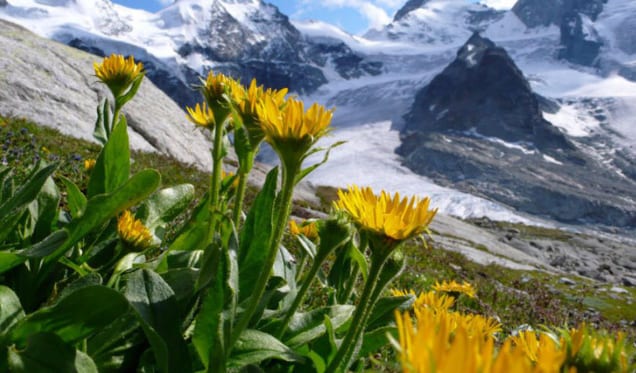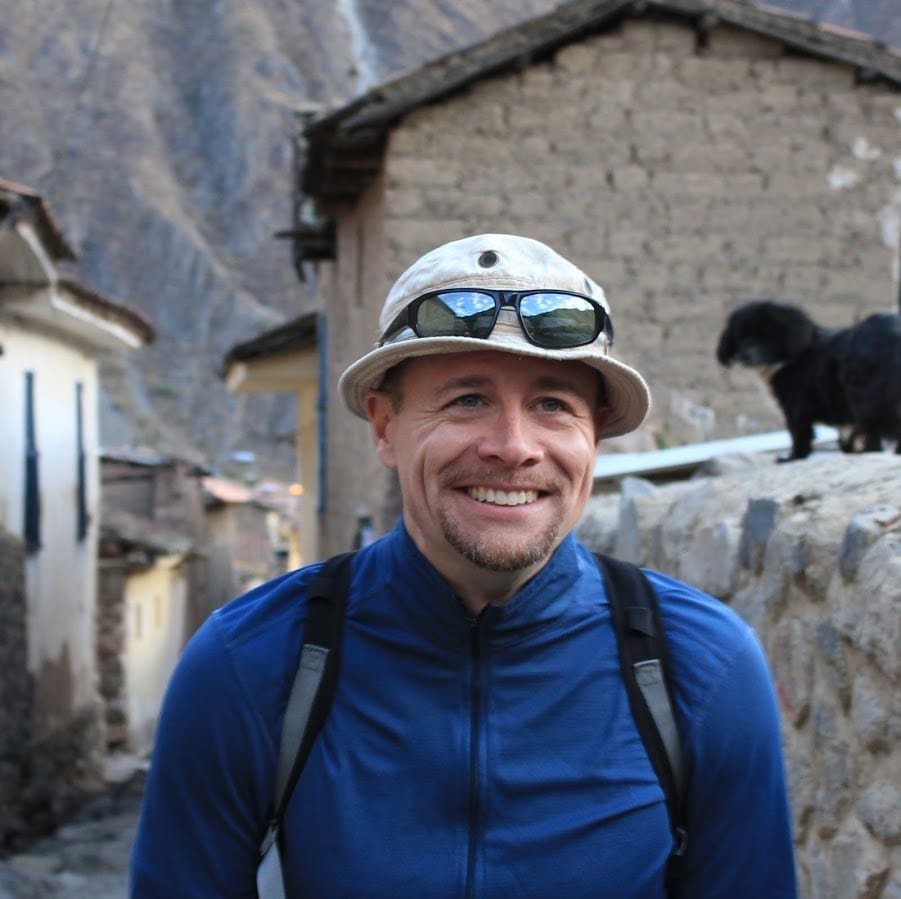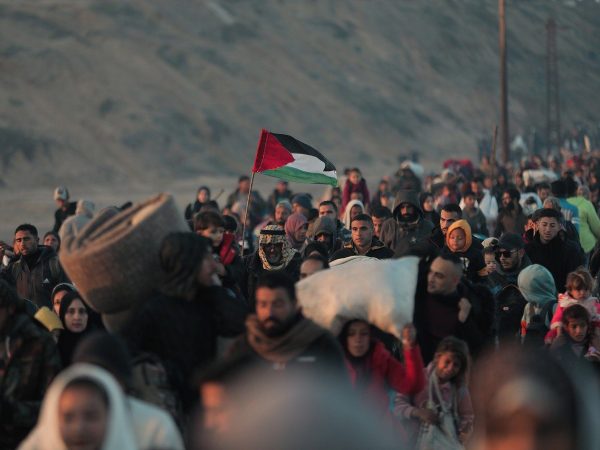During his life, the Buddha foretold that the next Buddha would be ‘Maitreya, the Buddha of Love.’ Ven. Thích Nhất Hạnh has predicted that “Maitreya Buddha may be a community and not just an individual.” This powerful thought at once reminds us of both the truth of interdependence and the power of sangha. But what if Maitreya Buddha were in fact not just an enlightened community, but an entire planet waking up?
The challenge of climate change and our dependence on fossil fuels represents the clearest and most pernicious example of the root causes of suffering playing out in a global, systemic way. The recent International Dharma Teachers’ Statement on Climate Change explained climate change as “perhaps humanity’s greatest teacher yet about how the mental forces [of craving, aversion and delusion], when unchecked in ourselves and our institutions, cause harm to other people and the living environment.”
The size of the challenge is difficult to overstate for its causes seem so ingrained in habitual patterns and dominant systems. Understandably, we feel anxious and even hopeless about the possibility of turning things around. The Dharma offers medicine. Climate change not only demonstrates the truth of the Dharma, but the Dharma instructs us on how to respond.
The Buddha taught that when faced with similar challenges at the individual level – which can seem just as daunting at times as climate change – there is a tested path to waking up. By seeing clearly, accepting the truth of what is, speaking wisely and acting with compassion in response to the truth, we can be with anything and promote peace.
Okay, you say, but at this scale action by individuals is important, but not enough. What we need is the entire world to wake up and that’s not realistic, at least on the time scale we need.
Realistic or not, it is happening. A form of wide-spread awakening in fact already has begun. Not surprisingly it has started with non-human life, which is less encumbered by our wonderful and complex mind. Earth’s oceans grow warmer and more acidic every year; skies hold much more heat and energy, creating stronger storms; plants, amazingly, are beginning to move en masse as habitats shift; and other animals move as well in search of new homes and food. All are responding and all are changing. In fact, the entire system of life around us is acting on the truth of climate change, and even sooner than our watchful scientists expected.
The Power of Sangha
Now, it is our turn. With the knowledge that the society of life on Earth is responding to climate change, we can look around our workplaces, our schools, our neighborhoods and our sanghas for all fellow beings ready to respond to this call to life. For we need each other. On this point, both the teachings of the Buddha and Western psychology agree.
In her essay on psychoanalysis and climate change, Sally Weintrobe advises that “coping with issues of the magnitude of climate change is not possible at an individual level. Facing the uncertainties posed by current threats is only possible by joint effort in a social community[.]” And as the Buddha explained to faithful Ananda, “good spiritual friends are the whole of the holy life. Find refuge in the sangha community.”

We know from our experience that our spiritual sanghas in particular can provide an ideal space to speak truths that often go unspoken in other parts of life. And by sharing together in sangha we create a container to hold the enormous anxiety and sadness that can come with seeing the truth. Through our own practice and the vital support of sangha, we realize that we can be with anything and often unlock streams of energy and dedication. We are thus encouraged and strengthened to speak and act with wisdom and compassion in ever-widening circles of our lives.
An Uncomfortable Truth
Yet this jewel serves only if we let it shine. And here may be an uncomfortable truth. As Rob Burbea, Resident Teacher at Gaia House, notes “it is humbling to admit that we as Buddhist meditators and Dharma Teachers, teachers of mindfulness, investigation and compassion are not immune to the psychological defense mechanisms [that humans use against the climate crisis. . . .] Our practices do not seem so far to have made us much more invulnerable to the multiple snares and subtle seductions of Mara here.”
In fact, in the face of the great anxiety and shame that arises over our own responsibility, our minds can even turn to the Dharma as an excuse not to act. We might find some form of solace in Buddhist notions that the world is an “impermanent illusion ,” “suffering a mistake that can be cured solely within our minds” or “freedom from suffering is attainable only through non-attachment to the fate of all beings.” As Joanna Macy reminds us, the mind can create “’spiritual traps’ that cut the nerve of compassionate action.”
As Buddhists we are far from immune to the treacherous charnel ground of climate suffering. Yet we also have the tools to face it. We can seek refuge in sangha itself. Burbea compels us, “we have to talk about this issue. And we have to actually do something about it. If we, as Teachers or as the wider Sangha cannot, or will not, even have this discussion, what does that say about us, and about the state of the Dharma?”
The Road to Paris
As world leaders come together in Paris in December 2015 to create strong collective climate action, there are many important moments to act. Unlike the talks in Copenhagen five years ago, the “road” to Paris is as important as Paris itself. Key milestones lead up to Paris where progress must be made, including a deadline for new national targets in March of 2015.
The road to Paris began in September when UN Secretary General Ban Ki Moon called every Head of State to New York to jointly commit to success. To clarify the depth and breadth of our concern, over 400.000 so-called regular folks from all over the world also came to New York in the largest public gathering for climate action in human history — the People’s Climate March. Local communities also held 2646 parallel actions in 162 countries in solidarity. Members of One Earth Sangha joined the presence of over a thousand Buddhists gathering with other spiritual traditions on 10,000-strong “faith block.” A world of people came together.
Wise Speech, Wise Action
As Buddhists, we have something unique and powerful to add to this moment and this movement. Peaceful, compassionate action that is deeply committed is balanced by the long view, recognizing that the challenge of addressing a warming world will be with us for many lifetimes. So we chose our moments, dedicate our efforts and release our attachments to any specific outcome. By seeing and using the power of sangha, we not only support each other and discover important lessons for the rest of humanity, but also provide stronger conviction for Buddhists to act.
We are all invited to join in actions at all levels as an expression of a Buddhist wisdom path. A global community of teachers and practitioners is expressing a Buddhist response to climate change as part of “One Earth Sangha.” This online network, a sangha of sanghas, puts action on climate in the context of spiritual practice. One Earth Sangha offers Dharma, connect sanghas and coordinates participation in events like these so that we can be together, in Sangha.
There are times for silence there are times for speaking and acting. It is time for the global Buddhist community to turn towards this suffering, look courageously, look deeply and then to speak our hearts’ wisdom.







